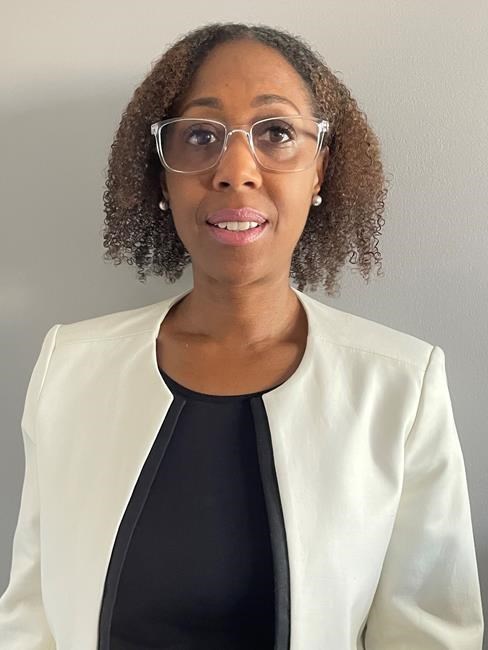
KPMG financial crimes expert Cherolle Prince, shown in this undated handout image, says you want to trust, but verify you really are dealing with the Canada Revenue Agency before you give out any information if you contacted by someone saying they are from the tax agency. THE CANADIAN PRESS/HO-KPMG
*MANDATORY CREDIT*
Republished June 11, 2021 - 10:48 AM
Original Publication Date June 10, 2021 - 7:01 AM
OTTAWA - The scam is a common one: a phone call claiming to be the Canada Revenue Agency demanding an immediate payment.
If you think it might really be the government calling you about your taxes, you should verify it is before you do anything, experts say.
Cherolle Prince, a financial crimes expert at KPMG, says you want to trust, but verify you really are dealing with the CRA before you give out any information.
"Ask the right questions to yourself, does this call make sense," she said. "Why does the CRA need that information? Have I provided that to them already? What would they be doing with that information and why do they need it now?"
Prince says a red flag may be if the caller is asking for information over the phone that CRA should already have if they are calling you.
"If you call them, they may ask for personal information as a way to identify you, it is part of their authentication protocol, but they would not call you for that information," she said.
CRA spokesman Paul Murphy says if you're unsure it really is the tax agency calling that you should to ask the caller for their name, which CRA office they are calling from and their phone number.
Then, Murphy says, hang up and contact CRA using the general inquiry number on the agency's website before you provide any information and ask them to verify that the call was legitimate.
"The call display option isn't always the best because these scammers will use technology to spoof that they are calling from Canada, that they are calling from Ottawa or what have you," he said.
Murphy says CRA will never demand immediate payment in Bitcoin or gift cards.
Another red flag, Murphy says, is if the caller tells you not to talk to anyone such as a family member or your accountant about the matter.
"That's not something a CRA employee would ever demand of you. You have a right to have representation, you have the right to talk to somebody about your personal tax dealings before you deal with the CRA," he said.
Just because CRA is calling it doesn't mean you're facing an audit. In most cases, the agency says, it is a routine check.
Depending on the circumstances, if you filed your tax return electronically, the agency may be seeking things like RRSP or charitable contribution receipts that would have been filed if you had filed a paper tax return.
Carmela Pallotto, a tax partner at KPMG, says an initial phone call from CRA is very rare.
"It is not unheard of, but normally they would correspond by mail and not by email either," she said.
"They do not email unless you've already entered into some sort of dialogue with them and you've asked them to email you something and even then they are extremely hesitant to email you anything, that's just not the way they operate."
Pallotto said if the caller is demanding immediate payment, that's just not how CRA works.
"It's never immediate. They usually give you a period of time to respond to a request because they understand you might not have everything readily available," she said.
"You shouldn't be afraid to have to call CRA back."
This report by The Canadian Press was first published June 10, 2021.
Note to readers: This is a corrected story. An earlier version included an imprecise description of when the CRA may ask for personal information.
News from © The Canadian Press, 2021